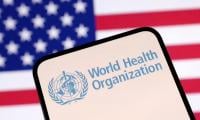Textile exports without phyosanitary permit threaten economy
LAHORE: The textile exports bypassing phytosanitary certificate have become a serious threat to the economy as most of the European Union countries have returned untested wooden packaging consignments.Untested wooden packaging consignments are considered a risk to the environment and phytosanitary certificate assures that the plants used for packaging are risk
By Jawwad Rizvi
May 05, 2015
LAHORE: The textile exports bypassing phytosanitary certificate have become a serious threat to the economy as most of the European Union countries have returned untested wooden packaging consignments.
Untested wooden packaging consignments are considered a risk to the environment and phytosanitary certificate assures that the plants used for packaging are risk free.
According to the documents available with The News, more than 20 consignments of textile products have been returned from Lithuania, Latvia, Germany, Poland, and Italy as their respective authorities intercepted these on account of non phytosanitary certificate from Plant Protection Department of Pakistan (PPD). The intercepted consignments were packed in untreated wooden packaging.
More than half of the consignments intercepted in different countries were from a single textile exporter of Lahore who sent these consignments in untreated wooden crate packaging.
European Union Notification System for Plant Health Interceptions (EUROPHYT) after intercepting these consignments objected to Plant Protection Department Pakistan that the consignments were non compliant with the special requirements. It asked PPD to address all the inquiries directly to member states wherefrom these consignments have been intercepted.
According to the international standards for phytosanitary measures, there are two approved treatments associated with wood packaging material, Heat Treatment (HT) and Methyl Bromide (MB) treatment.
The protocols said ‘irrespective of the type of treatment applied, wood packaging material must be made of debarked wood’. For this standard, any number of visually separate and clearly distinct small pieces of bark may remain if they are less than three cm in width (regardless of the length) or greater than three cm in width, with the total surface area of an individual piece of bark less than 50 square cm.
For MB treatment the removal of bark must be carried out before treatment because the presence of bark on the wood affects the efficacy of the methyl bromide treatment. For HT, the removal of bark can be carried out before or after treatment. In HT method the wood packaging material must be heated in accordance with a specific time–temperature schedule that achieves a minimum temperature of 56 °C for a minimum duration of 30 continuous minutes throughout the entire profile of the wood, including at its core.
In MB method the wood packaging material must be fumigated with methyl bromide in accordance with a schedule that achieves the minimum concentration-time product (CT) over 24 hours at the temperature and final residual concentration.
Unfortunately, in Pakistan HT method of wood treatment does not exist while MB method depletes ozone. On the other hand, being signatory of Montreal Convention, Methyl Bromide wood treatment method can be used only in special cases. Thus in general this method cannot be applied for wood treatments.
Director General Plant Protection Department Pakistan, Dr Mubarik Ali talking to The News said that they were aware of the situation and has already taken up the issue with ministries concerned, adding that letters have been written to the ministries to create awareness among the textile exporters to address the issues.
“We are also working to hold a high level meeting with Ministry of Commerce, Ministry of Food Security, Ministry of Textile and others involved to resolve the issue amicably,” Dr Mubarik said.
Talking about number of consignments returned from the EU due to untreated wooden packaging issue, he said they are around 14, 15 but correct numbers can only be declared after checking the records.
He further said that it is impossible for plant protection department to physically inspect thousands of export containers, besides the department does not issue phytosanitary certificate to the textile products. It only provides phytosanitary certificate for the wooden packaging and it is the responsibility of the exporter as well as the textile industry to look into the matter.
He accepted that the HT method for woods does not exist in Pakistan and long term working is required to make it available.
Untested wooden packaging consignments are considered a risk to the environment and phytosanitary certificate assures that the plants used for packaging are risk free.
According to the documents available with The News, more than 20 consignments of textile products have been returned from Lithuania, Latvia, Germany, Poland, and Italy as their respective authorities intercepted these on account of non phytosanitary certificate from Plant Protection Department of Pakistan (PPD). The intercepted consignments were packed in untreated wooden packaging.
More than half of the consignments intercepted in different countries were from a single textile exporter of Lahore who sent these consignments in untreated wooden crate packaging.
European Union Notification System for Plant Health Interceptions (EUROPHYT) after intercepting these consignments objected to Plant Protection Department Pakistan that the consignments were non compliant with the special requirements. It asked PPD to address all the inquiries directly to member states wherefrom these consignments have been intercepted.
According to the international standards for phytosanitary measures, there are two approved treatments associated with wood packaging material, Heat Treatment (HT) and Methyl Bromide (MB) treatment.
The protocols said ‘irrespective of the type of treatment applied, wood packaging material must be made of debarked wood’. For this standard, any number of visually separate and clearly distinct small pieces of bark may remain if they are less than three cm in width (regardless of the length) or greater than three cm in width, with the total surface area of an individual piece of bark less than 50 square cm.
For MB treatment the removal of bark must be carried out before treatment because the presence of bark on the wood affects the efficacy of the methyl bromide treatment. For HT, the removal of bark can be carried out before or after treatment. In HT method the wood packaging material must be heated in accordance with a specific time–temperature schedule that achieves a minimum temperature of 56 °C for a minimum duration of 30 continuous minutes throughout the entire profile of the wood, including at its core.
In MB method the wood packaging material must be fumigated with methyl bromide in accordance with a schedule that achieves the minimum concentration-time product (CT) over 24 hours at the temperature and final residual concentration.
Unfortunately, in Pakistan HT method of wood treatment does not exist while MB method depletes ozone. On the other hand, being signatory of Montreal Convention, Methyl Bromide wood treatment method can be used only in special cases. Thus in general this method cannot be applied for wood treatments.
Director General Plant Protection Department Pakistan, Dr Mubarik Ali talking to The News said that they were aware of the situation and has already taken up the issue with ministries concerned, adding that letters have been written to the ministries to create awareness among the textile exporters to address the issues.
“We are also working to hold a high level meeting with Ministry of Commerce, Ministry of Food Security, Ministry of Textile and others involved to resolve the issue amicably,” Dr Mubarik said.
Talking about number of consignments returned from the EU due to untreated wooden packaging issue, he said they are around 14, 15 but correct numbers can only be declared after checking the records.
He further said that it is impossible for plant protection department to physically inspect thousands of export containers, besides the department does not issue phytosanitary certificate to the textile products. It only provides phytosanitary certificate for the wooden packaging and it is the responsibility of the exporter as well as the textile industry to look into the matter.
He accepted that the HT method for woods does not exist in Pakistan and long term working is required to make it available.
-
 US To Exit WHO: A Seismic Shift In Global Health?
US To Exit WHO: A Seismic Shift In Global Health? -
 Palace Staff Reveals Nothing Has Changed For ‘disgraced’ Andrew After Losing Titles
Palace Staff Reveals Nothing Has Changed For ‘disgraced’ Andrew After Losing Titles -
 How Did Taylor Swift Cope With ‘exhausting’ Sickness During Popular ‘Eras Tour’
How Did Taylor Swift Cope With ‘exhausting’ Sickness During Popular ‘Eras Tour’ -
 Artists Launch ‘Stealing Isn’t Innovation’ Campaign Against AI Use
Artists Launch ‘Stealing Isn’t Innovation’ Campaign Against AI Use -
 Elon Musk’s XAI Grok Imagine Now Generates 10-second Videos With Sharper Quality: Here’s How
Elon Musk’s XAI Grok Imagine Now Generates 10-second Videos With Sharper Quality: Here’s How -
 Gaten Matarazzo Reveals Having A Gripe About Unfair Treatment On 'Stranger Things'
Gaten Matarazzo Reveals Having A Gripe About Unfair Treatment On 'Stranger Things' -
 Jeff Bezos Vs Elon Musk: Blue Origin Enters Satellite Race To Rival Starlink
Jeff Bezos Vs Elon Musk: Blue Origin Enters Satellite Race To Rival Starlink -
 Charlie Puth Explains Why He Went Against His Own Words About 'Hero'
Charlie Puth Explains Why He Went Against His Own Words About 'Hero' -
 Popular Weight-loss Drugs Could Help Treat Addiction
Popular Weight-loss Drugs Could Help Treat Addiction -
 Brooklyn Beckham In ‘terrible Spot’ Like Prince Harry After Airing Family Drama
Brooklyn Beckham In ‘terrible Spot’ Like Prince Harry After Airing Family Drama -
 A$AP Rocky Reveals Real Reason Behind Feud With Drake
A$AP Rocky Reveals Real Reason Behind Feud With Drake -
 Stroke During Pregnancy Linked To Long-term Heart Problems
Stroke During Pregnancy Linked To Long-term Heart Problems -
 Trump Backs Off European Tariffs Threat After Reaching ‘framework Of A Future Deal’ On Greenland With NATO
Trump Backs Off European Tariffs Threat After Reaching ‘framework Of A Future Deal’ On Greenland With NATO -
 South Korea Passes World’s First Comprehensive AI Law, Reshaping Global Regulation
South Korea Passes World’s First Comprehensive AI Law, Reshaping Global Regulation -
 ‘Disgraced’ Andrew’s New Demands Exposed As He Moves Out Of Royal Lodge
‘Disgraced’ Andrew’s New Demands Exposed As He Moves Out Of Royal Lodge -
 Court Allows TikTok To Operate In Canada Pending Review
Court Allows TikTok To Operate In Canada Pending Review



